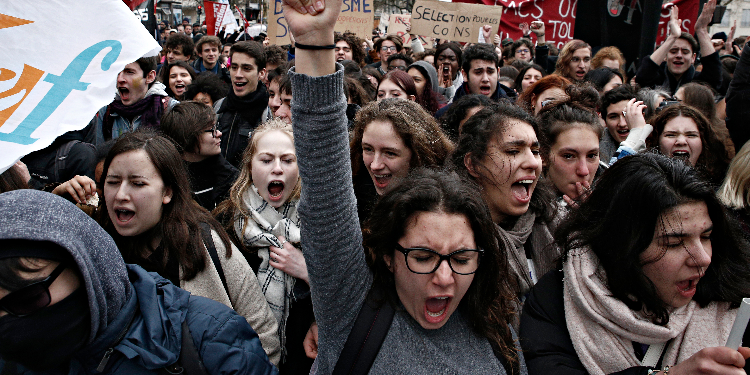
They said they would so they did. December 5th, marked the beginning of a new general strike movement in France. Causing mayhem is the pension reform announced for the end of year. The government is following the case closely. A year after the beginning of the yellow vest movement, is it regaining momentum?
Strong mobilisation
Who has it right? According to government estimates, there are 800, 000 strikers with 65, 000 in Paris alone whereas the General Confederation of Labour (GCL) believe they are around 1.5 million, with 250, 000 in Paris to be involved.
It is, indeed, in Paris that the situation is the most tense: 90% of trains have been canceled; and the underground has come to a halt. But other regions are also involved, with offices closed and protests happening. Along with public transport agents, those of schools and other institutions have also gone on strike. Seventy percent of teachers joined the strikers, according to unions. According to government estimates, however, only 40 to 50% of teachers are on strike.
In Paris, police services advised traders not to open on December 5th. While some of them followed the advice, others have decided to open, in spite of everything: they are pharmacists or bartenders who do not want to give in to the black blocks, the radicalized individuals who melt into the protests with the sole aim to degrade public infrastructure, and seek the confrontation with police forces. Police officers also had to file complaints after receiving death threats sent to their homes.
On France info, Gerard says he regrets this situation: "It's sad." He fears that the media will only give coverage to the “thugs” once again. Others, although they bemoan the degradation of public infrastructure are determined to continue the movement "until retirement".
A reminder of 1995
In 1995, the French rose against the pension reform. They protested for 24 days. One of the biggest strikes of the country, it paralyzed the whole country. It is this effect that the most determined protesters seek to provoke. They've thought it through thoroughly: in December, the end of year bonus allows them to hold a few more weeks into 2020 January 2020.
The only ones to rub their hands are the bus companies and other carpool websites. With bookings up 70%, they provide transport (but do not guarantee arrival on time because of the traffic jam).
And the others ? Non-strikers, traders especially, worry. No one wants to relive last year's disturbed Christmas period. Since November 17, 2018 - when the movement of yellow vests began - business has not been at its best. What sparked the yellow vests? An uprising against rising fuel prices. The movement grew, encompassing other demands: purchasing power, studies, pensions … According to government estimates, the "yellow vests" cost some 2.5 billion euros to the country. Hoteliers, shopkeepers, craftsmen, transporters ... all are worried about a lasting recovery of the strike. Their turnover still bears the burden of Christmas 2018. They fear new financial difficulties, and have made appeals to the state.
The state observes. Prime Minister Edouard Philippe will present the details of his pension reform next week. But he warns: no canceling the law despite the pressure. The unions have continued the strike until Monday, December 9th. And last Friday, December 6th, the same unions are already calling for a new big day of mobilization next Tuesday.



















